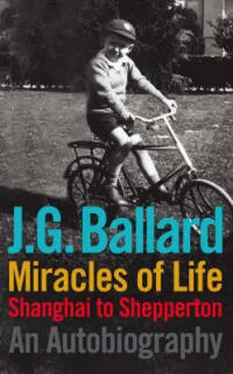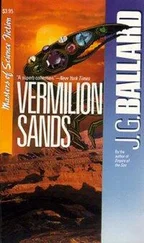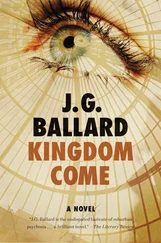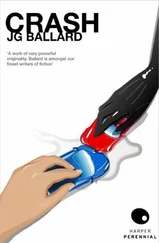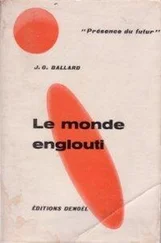Two weeks after finishing the novel I was involved in a car crash of my own, when my tank-like Ford Zephyr had a front-wheel blowout at the foot of Chiswick Bridge. The car swerved out of control, crossed the central reservation and rolled onto its back. Luckily I was wearing my seat belt. Hanging upside down, I found that the doors had been jammed by the partly collapsed roof. People were shouting: ‘Petrol! Petrol!’ The car lay in the centre of the oncoming carriageway, and I was fortunate not to be struck by the approaching traffic. Eventually I wound down the window and clambered out. An ambulance took me to a nearby hospital at Roehampton, where my head was X-rayed. I had mild concussion for a fortnight, a constant headache that suddenly cleared, and was otherwise unhurt.
Looking back, I suspect that if I had died the accident might well have been judged deliberate, at least on the unconscious level, a surrender to the dark powers that propelled the novel. I have never had an accident since, and in half a century of driving have never made an insurance claim. But I believe that Crash is less a hymn to death than an attempt to appease death, to buy off the executioner who waits for us all in a quiet garden nearby, like Bacon’s headless figure in his herringbone jacket who sits patiently at a table with a machine gun beside him. Crash is set at a point where sex and death intersect, though the graph is difficult to read and is constantly recalibrating itself. The same is true, I suppose, of Tracey Emin’s bed, which reminds us that this young woman’s beautiful body has stepped from a dishevelled grave.
Crash has been published in many countries, and was widely reissued after the 1996 David Cronenberg film. It was a moderate success in Britain, but Jonathan Cape showed none of the flair of their French counterparts, Calman-Levy in Paris. The French edition was a huge success, and remains my best-known book in France. The French critics accepted without qualms the novel’s yoking together of sex, death and the motor car. Anyone who drives in France is steering into the pages of Crash .
An important factor in the French success of Crash was the long tradition of subversive works in France, going back at least as far as the pornographic novels of de Sade and extending more recently from the symbolist poets to the anti-clerical fantasies of the surrealists and the novels of Céline and Genet. No such tradition has ever existed in England, and it is impossible to imagine Story of O being published here in the 1950s. The United States, now fast becoming a theocratic state run by right-wing political fanatics and religious moralisers, has posed similar problems to its more challenging writers. Nabokov’s Lolita , Henry Miller’s Tropic novels, and William Burroughs’ Naked Lunch were all first published in Paris by the Olympia Press, a small publishing house that specialised in literary porn.
Crash created little stir when it first appeared in Britain, but twenty-five years later, after a period when the country was supposed to have liberalised itself, a preposterous storm in the largest teacup that Fleet Street could find showed just how repressed and silly as a nation we could be.
David Cronenberg’s film of Crash was premiered at the Cannes Film Festival in 1996. It was the most controversial film of the festival, and the controversy continued for years afterwards, especially in England. Desperate Conservative politicians, facing defeat at the imminent general election, attacked the film in an attempt to gain moral credit as the guardians of public decency. One cabinet minister, Virginia Bottomley, called for the film (which she had not seen) to be banned.
The Cannes festival is an extraordinary media event, in many ways deeply intimidating to a mere novelist. Books may still be read in vast numbers, but films are dreamed. Claire and I were stunned by the screaming crowds, the lavish parties and stretch limos. I took part in all the publicity interviews, and was deeply impressed to see how committed the stars of the film were to Cronenberg’s elegant adaptation of my novel.
I was sitting next to Holly Hunter when we were joined by a leading American film critic. His first question was: ‘Holly, what are you doing in this shit?’ Holly sprang into life, and delivered a passionate defence of the film, castigating him for his small-mindedness and provincialism. It was the greatest performance of the festival, which I cheered vigorously.
The film opened in France within a few weeks, and was very successful, and then went on to open across Europe and the rest of the world. In America there were problems when Ted Turner, who controlled the distribution company, decided that Crash might offend public decency. At the time, interestingly, he was married to Jane Fonda, who had enlivened her career by playing prostitutes (as in Klute ) or cavorting naked in a fur-lined spaceship (in Barbarella ).
In England the film was delayed for a year when Westminster Council banned it from the West End of London, and a number of other councils up and down the country followed suit. When the film finally opened there were no copycat car crashes, and the controversy at last died down. Cronenberg, a highly intelligent and thoughtful man, was completely baffled by the English reaction. ‘Why?’ he kept asking me. ‘What’s going on here?’
After fifty years, I was nowhere nearer an answer.
21
Lunches and Films (1987)
By 1980 my three children were adults and away at their universities. Within a year or two they would leave home and begin their careers apart from me, and the richest and most fulfilling period in my life would abruptly come to an end. I had already had a foretaste of this. As every parent knows, infancy and childhood seem to last for ever. Then adolescence arrives and promptly leaves on the next bus, and one is sharing the family home with likeable young adults who are more intelligent, better company and in many ways wiser than oneself. But childhood has gone, and in the silence one stares at the empty whisky bottles in the pantry and wonders if any number of drinks will fill the void.
We had enjoyed the 1970s together, the dull Heath years and the twilight world of the last Old Labour government, largely by going abroad whenever we could. Claire and I and our four children would climb into my large family saloon and head for Dover, watch the white cliffs recede without a pang (I never saw a tear shed by a single fellow passenger on countless cross-channel ferries) and begin to breathe freely as we emerged through the bow doors and rolled the wheels across the Boulogne cobbles. Soon there was the intoxicating reek of Gauloises, scent, merde and higher octane French petrol – now sadly all gone, including the cobbles. For reasons I have never understood, we took few photographs, and had left it too late when the children decided to holiday on their own. But memory is the greatest gallery in the world, and I can play an endless archive of images of the happy time.
Waving goodbye to the children as Claire and I set off on our first holiday alone, I found myself thinking of Shanghai again. I had almost forgotten the war, and never referred to Shanghai in conversation with friends, and rarely even to Claire and the children. But I had always wanted to write about the war years and internment, partly because so few people in England were aware of the Pacific war against the Japanese.
It was then nearly forty years since I entered Lunghua Camp, and soon my memories would fade. Few novelists have waited so long to write about the most formative experiences of their lives, and I am still puzzled why I allowed so many decades to slip by. Perhaps, as I have often reflected, it took me twenty years to forget Shanghai and twenty years to remember. During my early years in England after the war Shanghai had become an unattainable city, an El Dorado buried beneath a past to which I could never return. Another reason was that I was waiting for my children to grow up. Until they were young adults I was too protective of them to expose them in my mind to the dangers I had known at their age.
Читать дальше
